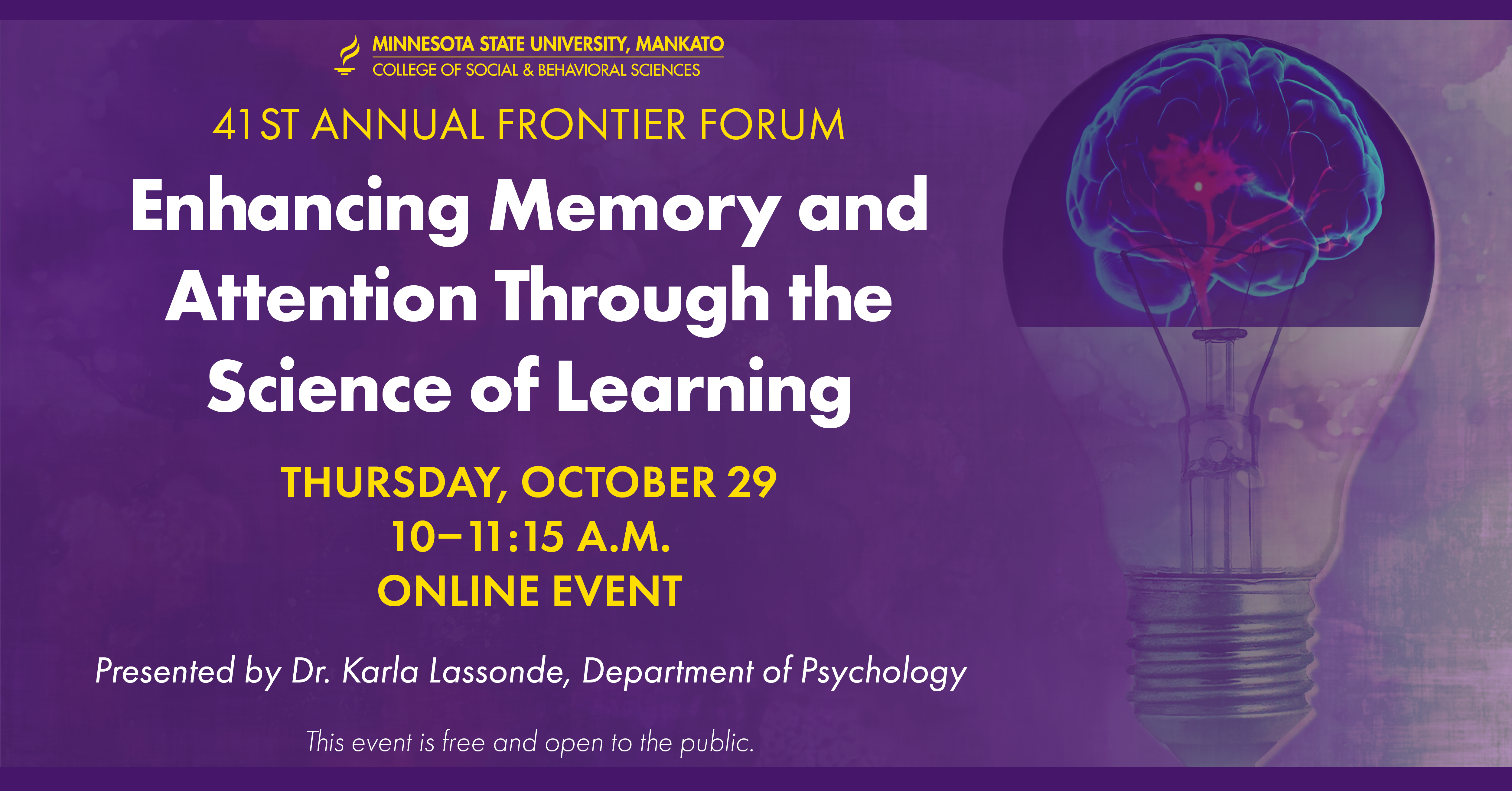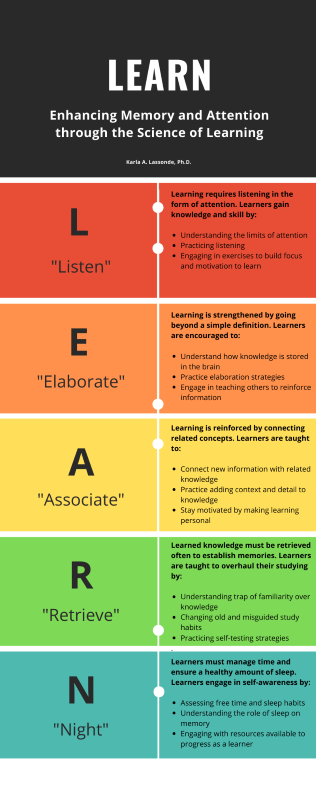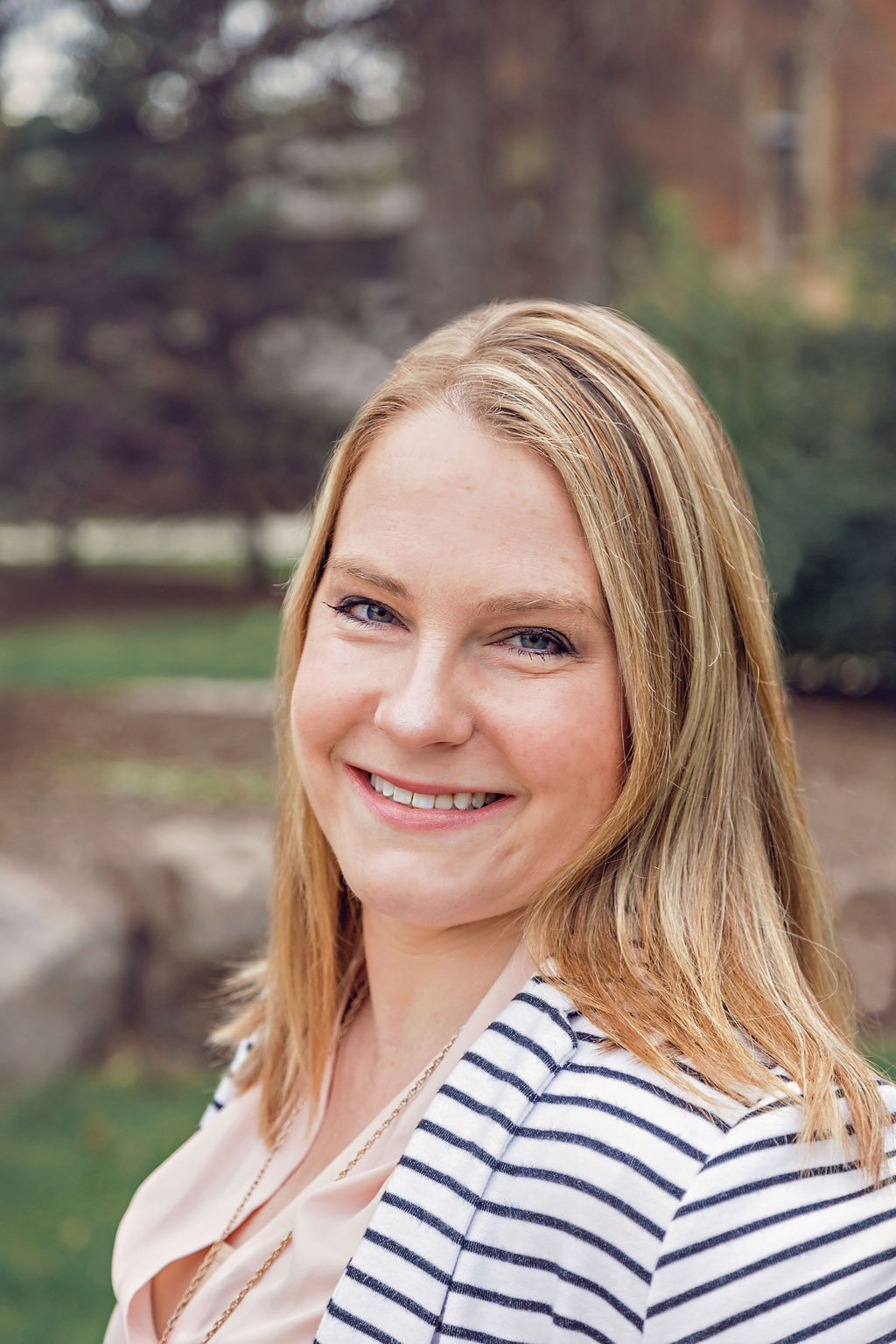Frontier Forum: Enhancing Memory and Attention Through the Science of Learning


Were you curious about bugs or space as a child? Intellectual curiosity makes learning easy. When we are curious we are highly motivated to learn all we can about a subject. Traditional teaching and learning environments may strongly emphasis learning vast amounts of material, yet learners often lack motivation and curiosity. In addition, students are not taught the cognitive skills related to memory and attention that would make them more successful learners.
My time teaching courses in cognition and memory has taught me that students enjoy learning how to learn. They are often shocked to find out that many of their go-to strategies for learning, like re-reading notes, and cramming before test are ineffective for long-term retention of material. For the majority of students, no one has stopped to teach them how to learn.
In this talk I will discuss limits of attention and best strategies for long-term memory. Audience members will become participants by engaging in activities that test memory basics. Exciting research in learning myths and the benefit of sleep for memory will be discussed. The audience will leave with strategies to apply to their learning.
View recording of the lecture:
About Dr. Karla Lassonde
Dr. Karla Lassonde has been a professor of cognitive psychology in the Psychology Department at Minnesota State University, Mankato for the past 11 years. Before joining the faculty at Minnesota State Mankato, she received her Ph.D. and M.A. from the University of New Hampshire in cognitive psychology, where she also received a master’s in college teaching. Lassonde conducts research on the fundamentals of thinking and memory with a team of undergraduates. She believe that research mentoring is the very best way to support students for overall success. Her passion for undergraduate research led to serving as the director for the Undergraduate Research Center from 2014-2017. Lassonde's research focuses on methods for revising science misconceptions, knowledge change for controversial topics, and the LEARN method. She also serves on editorial boards for flagship journals in the area of the Science of Teaching and Learning. She is passionate about bringing psychology to the general public. Lassonde is particularly proud of her departmental work developing Experiencing Psychology Day at the Southern Minnesota Children’s Museum, and curatoring, along with colleague Dr. Emily Stark of the Communicating Psychological Science website.


